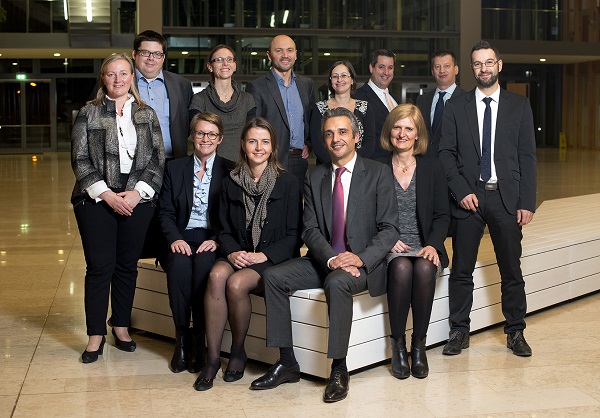
With 320 entities, 15,000 employees and more than €550 million net profit, the Financial Sector Professionals (PSF) represent a vital link to the smooth functioning of the Luxembourg financial sector.
Whether specialised support or investment firms, PSF covers a wide range of services directly or indirectly related to the financial sector. A guarantee of quality and compliance, PSFs are entities regulated by the CSSF, Luxembourg's financial regulator. In 2015, the status of PSF has spread to other areas. Latest examples: services ofdematerialisation and preservation of digital documents. Financial technologies open the door to new development opportunities for the sector. Built around the latest trends and regulatory and tax issues, the recent PSF Connect conference organised by PwC Luxembourg brought together a hundred professionals.
Financial technologies: New Niche for PSF
The PSF status has become over the years an undeniable selling point that now exports beyond the financial world. With the rise of Fintechs, the PSF sector has a role to play. Asked to explain the regulatory environment applied to Fintechs, Nadia Manzari, Head of the Innovation, Payments, Markets Infrastructure and Governance Department of the CSSF, agreed that the FinTech term now covers many activities ranging from technological innovation to attention of the financial sector to virtual currencies like Bitcoin.
"The Fintechs sector is a strong driver of growth and diversification. These companies work primarily on the safety and efficiency of financial transactions and on confidentiality, two important axes for PSF", said Cyril Lamorlette, Partner and Leader at PwC Luxembourg PSF. "Integrating Fintechs within the sector and the creation of new technological services to the attention of the financial world are very new niches."
When regulation is synonymous with excellence
As regulated entities, PSFs are subject to the same regulatory agenda as the actors of the financial service. Transparency has become the international standard so that the world of finance must be in tune. First FATCA and automatic exchange of information and now common reporting standards (CRS) or the BEPS action plan, the entire sector has embarked on an unstoppable movement of transparency. Added to this are MiFID II, regulating intermediation and the AML Directive, the latest version of which is designed to increase the effectiveness of anti-money laundering measures with the strengthening of the risk-based approach.
"The regulatory environment is well understood and supported. But regulating the outsourcing of certain activities of the PSF is unique in Europe. We are sending a powerful message that arouses the interest that may have foreign financial players to use the PSF services or to settle in Luxembourg," concluded Cyril Lamorlette.








